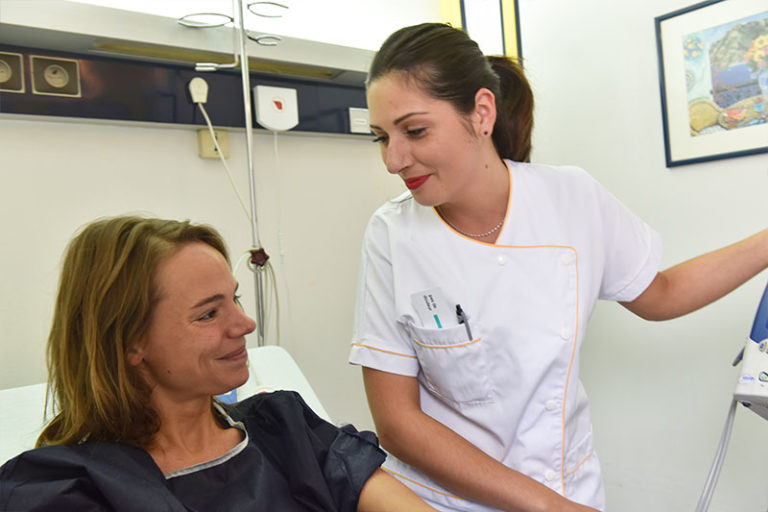The Victor Hugo Clinic’s healthcare teams are committed to assessing, relieving and managing your pain and providing you with any information you may require. This issue is an ongoing concern for everyone involved. In order to optimise this care, the clinic has established a Pain Control Committee.
The purpose of this body is to coordinate actions at the department level and to provide caregivers with the necessary means for optimal pain management. All our healthcare staff are trained in pain management.
Informing patients about pain management begins with your first consultation at the Clinic, where we provide you with the welcome booklet containing a “pain management agreement”. You will be informed about the possibility of pain and how to treat it.
We continue to demonstrate our commitment during the pre-anaesthesia consultation with our resuscitation anaesthetists, and throughout your stay with the paramedical teams who are trained in pain assessment and the selection of effective pain relief treatments.

Assessing pain for better pain relief
At any time, you can express the severity of your pain by using a scale of 0 to 10: 0 means no pain and 10 means the worst possible pain. Before your operation, the nurse will explain how to use it.
Our teams will systematically and regularly assess your pain, as well as your blood pressure, pulse rate and temperature.
Pain medication consists of analgaesics. These medicines relieve pain, even if they do not always completely eliminate it. They are prescribed by your physician according to the nature and intensity of your pain. Please note that morphine is a powerful analgaesic. It is a medicine, not a drug. It is one of the medicines recommended by the World Health Organisation (WHO).
Pain management
Outpatient surgery is defined as surgery with an anaesthetic that allows the patient to leave the hospital on the same day as the operation, without increased risk. In France, 40% of surgeries are performed on an outpatient basis.
The preferred anaesthesia techniques are those that allow the rapid recovery of the main vital functions with minimal side effects. Upper limb surgery under locoregional anaesthesia (LRA) seems to be particularly well adapted to these requirements.
